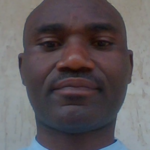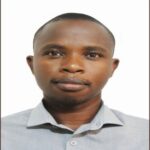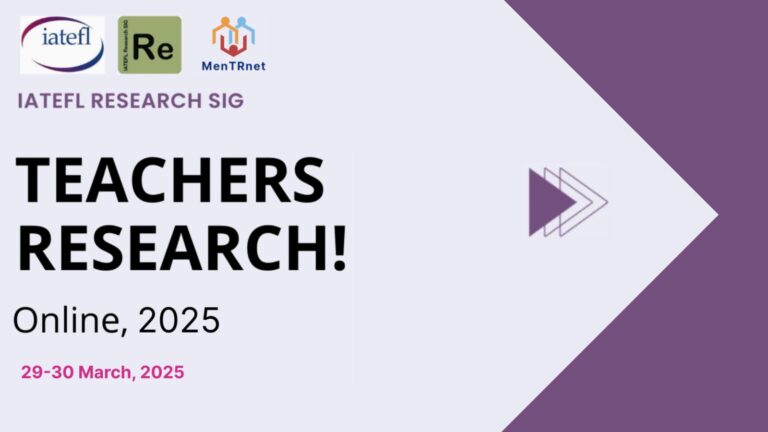
This blog is based on a presentation given in the International Festival of Mentoring Teacher-Research on 14th September 2024, where James Mbonyuburyo, Laurent Ahishakiye, and Jean Damascene Uwamahoro shared the lessons they have learned from conducting a Hornby-sponsored teacher-research project through communities of practice in Rwanda. The main goal of the presentation was to inspire and support educators worldwide, especially those in other teacher associations, by highlighting the positive impact of their Hornby-sponsored initiative. You can watch their presentation here, and read about their experiences below.
Background information
In the last two decades, numerous reforms have been made in the Rwandan education system to improve the quality of education. For instance, the Ministry of Education (MINEDUC) introduced Education for All in 2003, shifted from French to English as a medium of instruction in education in 2008, and introduced a new curriculum known as ‘Competence-Based Curriculum’ in 2015. However, it has been difficult for teachers to embrace these changes, partly because they did not understand the reasons for such changes, and adopting top-down solutions without local testing has been extremely challenging. Additionally, most teachers did not receive adequate professional development, and resources were very limited.
To contribute to solving these problems, a few English language teachers founded The Association of Teachers of English in Rwanda (ATER) as a network that aims to provide contextualised continuous professional development (CPD) opportunities for English language teachers by and for teachers. To achieve this, ATER has decentralised its operations through communities of practice (CoPs) to reach out to teachers who are in remote areas and are normally the most vulnerable members as they have little access to adequate resources and opportunities for professional development.
This blog will focus on a teacher-research project conducted by three Rwandan Hornby alumni—James Mbonyuburyo, Laurent Ahishakiye, and Jean Damascene Uwamahoro—with funding from the A.S. Hornby Educational Trust. The project introduced teacher-research in CoPs as a local initiative to enhance teachers’ abilities to systematically assess the challenges they face while teaching English, and to develop ‘home-grown’ solutions. Most primary and secondary schools are not yet aware of this type of non-‘academic’ research and this project assisted them in understanding what teacher-research (TR) is and how it is conducted. The project intended to: raise teachers’ awareness about their potential to solve their problems through TR; reduce their reliance on imported English language teaching resources and expertise, which often do not fit in their contexts and with their needs; promote self-directed CPD; and find solutions to daily problems they encounter in their classrooms. In the next sections, we share our mentoring experience, challenges, and the strategies we used to overcome them.
TR mentoring experience
Our TR mentoring experience has been challenging and rewarding. Our project aimed to transform 25 CoP members from five CoPs into teacher-researchers and five teachers into TR mentors. Initially, we had planned to select and train five teachers (one from each CoP) as mentors who were supposed to help us (project leaders) to mentor their peers. However, when we started, we realised that these selected teacher-mentors had limited TR knowledge. Fortunately, amidst that dilemma, we learnt from Professor Richard Smith that MenTRnet organises training on mentoring teacher-researchers. Immediately, we joined the EVO 2024 Sessions.
These sessions played an essential role in our project. They were very informative (i.e. we understood what Exploratory Action Research (EAR) is and mastered each EAR step), practical (i.e. we practised teacher-research mentoring with a partner), transformative (i.e. we became confident and ready to train our colleagues). Our lesson from the sessions was that we should not approach a mentee as experts, but as collaborators and guides, and the support should derive from and build on what a mentee has said instead of being so directive.
After completing EVO 2024 training, we decided to play the role of mentors to practically develop our mentoring skills. We organised a face-to-face meeting with our teacher-researchers in Kigali City for them to understand each EAR step and the project plan.

After the training sessions, we started the exploratory research. Each of us (three mentors) was assigned seven teacher-researchers to mentor. Then, we started individualised mentoring via Google Teams, Zoom, WhatsApp, or telephone, depending on individual availability and accessibility. Within this period, teachers were supported to identify a problem they wanted to focus on, set research questions, collect data and analyse them, and come up with a change they wanted to make in their classroom to address the problem. Later, we had another face-to-face meeting to share the exploratory research results.

Sharing the outcomes of the exploratory phase
Within this meeting, each teacher committed to going back to their classrooms and starting the action stage by implementing a change they had presented in front of their peers. We (mentors) kept supporting teacher-researchers individually in the action stage and they kept recording their observations. In May 2024, they gathered in Kigali again to present their findings after implementing their change, and get feedback from their colleagues. This was also preparing them to present at the Inter-CoP conference that ATER organises annually. The conference took place on 11 May 2024 and gathered over 100 teachers including CoP members and non-ATER members from across the country who were invited to see what the association members do. It was a great opportunity to disseminate teacher-research to other members of the CoPs who did not take part in the project and to the invited teachers. Currently, although it is just a beginning, teacher-research is no longer a new concept.


Project benefits
Mentors:
The following benefits emerged from mentors’ personal reflections recorded in diaries, group reflections, and feedback from participants on their evaluations of the mentoring process:
- Increased understanding of teacher-research and the process of mentoring teacher-research;
- New mentoring skills such as building trust and mutual respect, communication techniques, and giving non-judgmental feedback (e.g., eliciting participants’ opinions, guiding them by asking questions, paraphrasing, or suggesting different options instead of directing them).
Mentees:
- Practised teacher-research and demystified it;
- Increased their sense of CPD ownership;
- Improved their networking skills for CPD;
- Discovered their potential to find solutions to their ELT problems.
Challenges and Solutions
Several challenges emerged during the mentoring process, each requiring thoughtful solutions. Distance barriers arose as mentors and mentees were located in different districts, with one mentor based in the United Kingdom. This was addressed through regular contact via WhatsApp and telephone calls. Teachers’ heavy workloads, with 30–35 hours of face-to-face teaching per week, highlighted the need to integrate teacher-research into their teaching process. Some teachers lacked sufficient knowledge of research, having never studied academic research before, which was addressed by emphasising that teacher-research is a gradual process. The absence of financial motivation was another hurdle, as some teachers expected monetary benefits. This was managed by sensitising them to the professional development benefits of the project. Additionally, limited English language skills were a concern, which was mitigated by boosting teachers’ self-confidence in delivering presentations in English. The lack of proper training materials—only a few books and videos on teacher-research were available—was tackled by adapting existing materials. Lastly, insufficient mentoring expertise was addressed through continuous training to enhance the mentors’ skills.
Conclusion
In conclusion, the Teacher-Research project has demonstrated the transformative potential of empowering teachers to address their challenges through localised solutions and collaborative learning. By equipping educators with teacher-research skills and fostering a culture of self-directed professional development, the project not only improved teaching practices but also strengthened the sense of community and ownership among teachers. Despite initial challenges, the project has laid a foundation for sustainable teacher-research in Rwanda, inspiring educators to take charge of their professional growth and contribute meaningfully to the improvement of English language teaching in their unique contexts.





